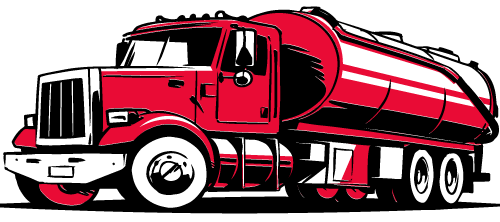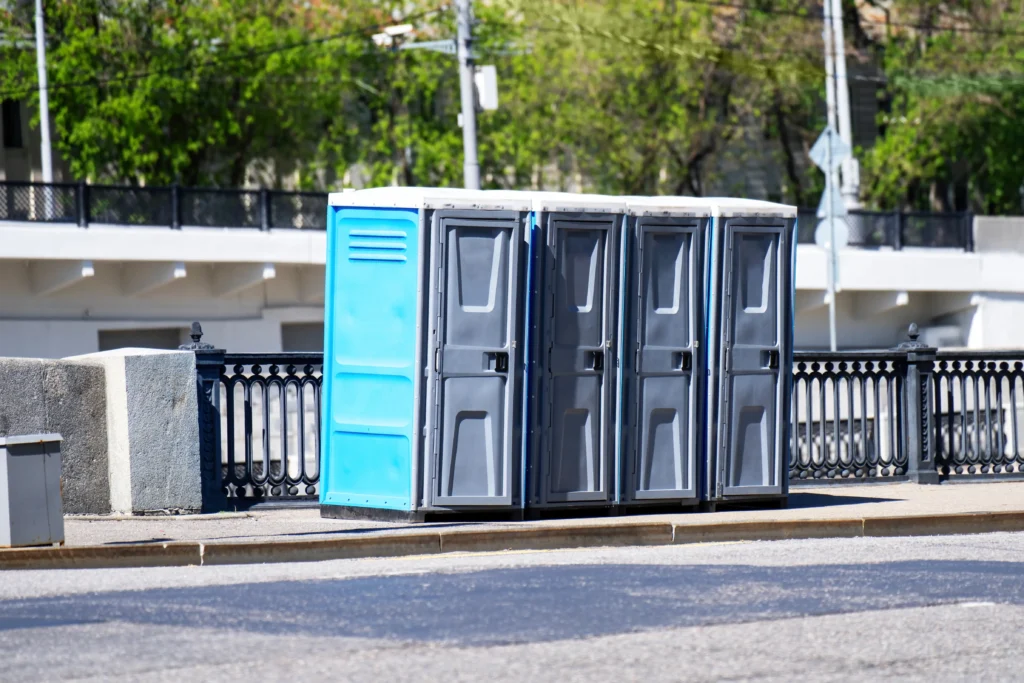Proper care of your septic system starts with one simple habit: watching what goes down your toilet. While many products are marketed as “flushable,” the truth is that only a few things belong in your toilet—and the rest can cause serious, expensive damage to your septic system.
At Local Septic Service, we’ve seen firsthand the costly repairs that come from improper flushing habits. Let’s explore what shouldn’t be flushed—and why making the right choices protects your plumbing, your septic tank, and the environment.
Only Flush the 3 P’s
When in doubt, remember the “3 P’s” rule—pee, poop, and (toilet) paper. These are the only things that are safely broken down by your septic system. Everything else, no matter how small or soft, can contribute to clogs, tank buildup, or system failure.
Top Items You Should Never Flush
1. Wet Wipes (Even “Flushable” Ones)
Despite being labeled “flushable,” wet wipes do not break down like toilet paper. They stay intact in your tank, bind with other debris, and often clog sewer lines or jam septic pumps. This includes:
- Baby wipes
- Antibacterial or disinfecting wipes
- Makeup remover wipes
- Flushable personal wipes
These wipes contribute to the formation of “fatbergs”—large, solid masses that block pipes and disrupt wastewater flow.
2. Feminine Hygiene Products
Tampons, sanitary pads, and panty liners are made of absorbent materials designed to expand, not disintegrate. Once flushed, they settle at the bottom of the septic tank, where they do not decompose and take up critical space, leading to more frequent pumping and reduced system capacity.
3. Cotton Balls, Swabs, and Dental Floss
Items like cotton products and floss may seem harmless, but they tangle, clump, and bind to other waste, creating clogs in both your plumbing and septic system. Dental floss, in particular, acts like a net—catching solids and making blockages worse over time.
4. Paper Towels and Tissues
While they resemble toilet paper, paper towels and facial tissues are engineered to be more durable and absorbent. These items take significantly longer to break down and often remain in your septic tank long after they’re flushed.
5. Grease, Oils, and Fats
You might not think of flushing grease, but pouring cooking oil or grease down the drain is just as damaging. As it cools, grease solidifies and coats the inside of pipes, leading to slow drains or full blockages. In your septic tank, grease floats and forms a thick scum layer that impairs bacterial breakdown and clogs the outlet filter.
6. Medications and Chemicals
Flushing old prescriptions or household cleaners introduces toxins and chemicals into your septic system. These substances:
- Kill essential bacteria in the tank
- Disrupt the breakdown of solids
- Contaminate groundwater and soil
Properly dispose of medications at approved drop-off sites and avoid flushing bleach, ammonia, paint, antifreeze, and other harsh chemicals.
7. Cat Litter
Even “flushable” cat litter is not safe for septic systems. Most litters are made of clay or silica, which do not dissolve and can settle into the tank as heavy sludge. In addition, cat feces may contain toxoplasma gondii, a harmful parasite that septic systems are not designed to treat.
8. Hair and Nail Clippings
Human or pet hair may seem biodegradable, but it tangles and mats, often collecting other debris in your plumbing or septic filter. Hair also takes an incredibly long time to break down, making it a major contributor to clogs over time.
9. Cigarette Butts
Cigarette filters are not biodegradable. They’re made of plastic fibers and absorb chemicals and toxins, which then leach into your septic system and groundwater. They also float, collect oils, and add to the scum layer in your tank.
10. Condoms and Latex Products
Latex materials do not break down in septic systems. When flushed, condoms, gloves, and balloons remain in your tank or pipes indefinitely, clogging pumps and making it difficult for technicians to clean your system properly.
How Improper Flushing Affects Your Septic System
Every time you flush something you shouldn’t, you risk:
- Clogging your household plumbing
- Reducing the efficiency of your septic tank
- Overloading your system with non-biodegradable waste
- Damaging your drain field
- Killing helpful bacteria inside your tank
- Triggering premature system failure or replacement
The cost of these problems can range from hundreds to tens of thousands of dollars, especially if a full drain field replacement becomes necessary.
Protecting Your Septic System: Smart Habits That Matter
Adopting proper flushing habits is easy and goes a long way toward extending the life of your system. Here’s what we recommend:
- Educate every member of the household—especially children and guests—on what not to flush.
- Post a reminder sign in your bathroom listing safe and unsafe items.
- Install drain strainers to catch hair and debris before it enters the system.
- Use septic-safe toilet paper only—brands labeled “septic-safe” break down faster and are less likely to clog.
- Schedule regular inspections and pumping based on your household size and tank capacity.
What to Do If You’ve Been Flushing the Wrong Things
If you’re unsure whether your past flushing habits have damaged your septic system, schedule a professional inspection. A technician can:
- Assess sludge levels in the tank
- Check for filter clogs or outlet blockages
- Examine your drain field for signs of overload
- Recommend a safe maintenance plan moving forward
The sooner you address the issue, the more likely you’ll avoid major repairs or system failure.
Think Before You Flush
What you flush matters—especially when your property relies on a septic system. With a simple commitment to flushing only the 3 P’s and avoiding harmful materials, you can keep your system running efficiently, protect the environment, and save yourself from costly repairs.
Treat your toilet like a gateway to your septic system, not a trash can.
#SepticSystemTips #WhatNotToFlush #SepticTankCare #HomePlumbingAdvice #ProtectYourSeptic

